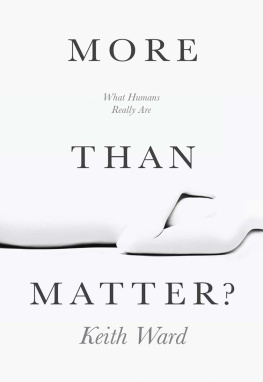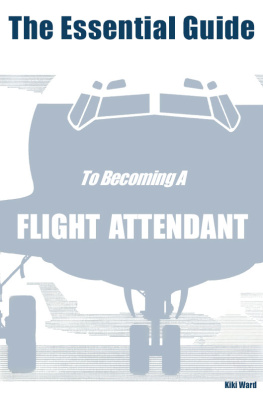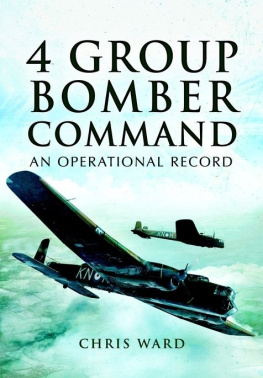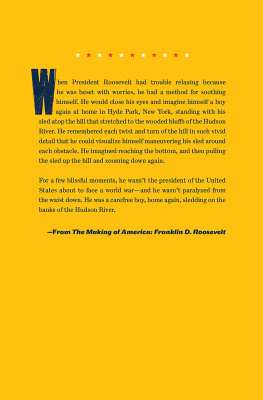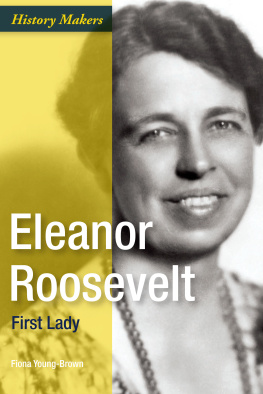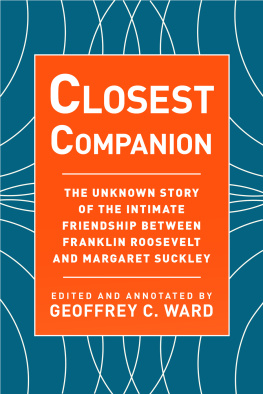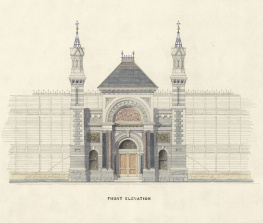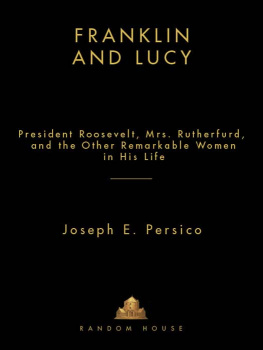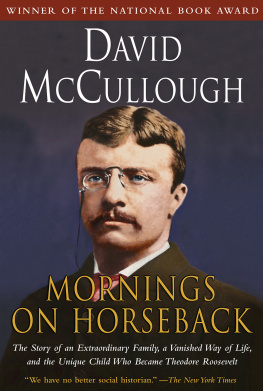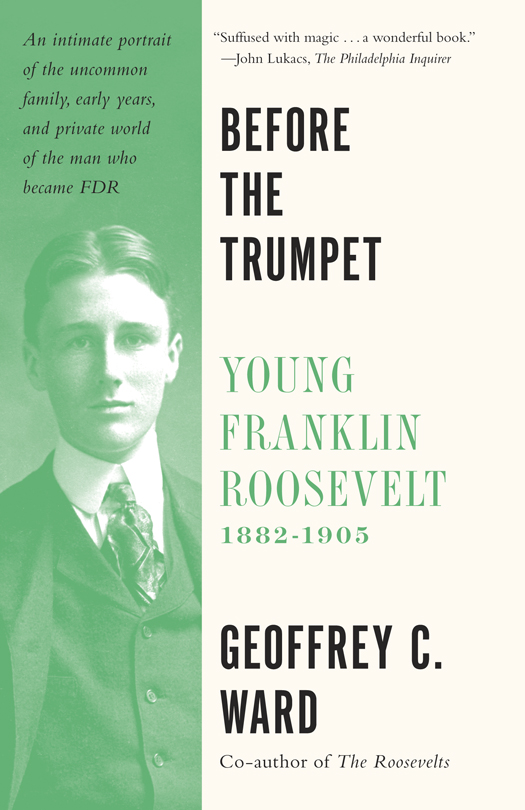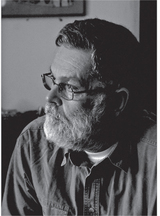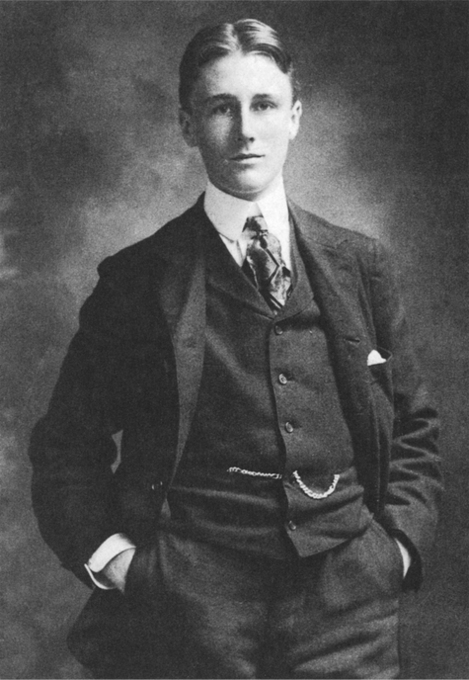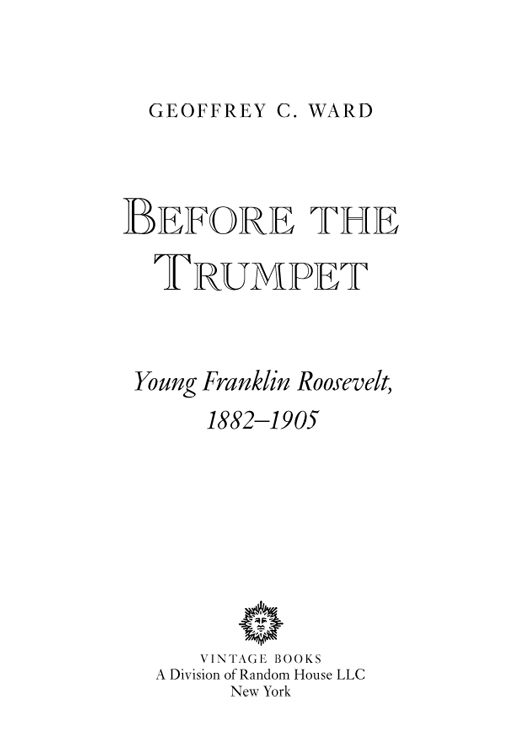GEOFFREY C. WARD
Before the Trumpet
Geoffrey C. Ward is the coauthor of The Civil War (with Ken Burns and Ric Burns) and the author of A First-Class Temperament: The Emergence of Franklin Roosevelt, which won the 1989 National Book Critics Circle Award for biography and the 1990 Francis Parkman Prize. He lives in New York City.
FRANKLIN ROOSEVELT AT SEVENTEEN
FIRST VINTAGE BOOKS EDITION, SEPTEMBER 2014
Copyright 1985 by Geoffrey C. Ward
All rights reserved. Published in the United States by Vintage Books, a division of Random House LLC, New York, and in Canada by Random House of Canada Limited, Toronto, Penguin Random House companies. Originally published in hardcover in the United States by Harper & Row, New York, in 1985.
Vintage and colophon are registered trademarks of Random House LLC.
Unless otherwise indicated, all photographs are courtesy of the Franklin D. Roosevelt Library at Hyde Park.
The Cataloging-in-Publication Data is on file at the Library of Congress.
Vintage Trade Paperback ISBN: 978-0-8041-7333-9
eBook ISBN: 978-0-8041-7334-6
www.vintagebooks.com
v3.1
CONTENTS
PREFACE
Three years ago, it was part of my job as the editor of American Heritage magazine to help decipher secret recordings made by Franklin D. Roosevelt in the Oval Office of the White House in the autumn of 1940. As I eavesdropped, fascinated, on the private conversations of the most important President of this century, I was struck above all by the tireless ebullience with which FDR seemed to face the world. Despite the muffled, primitive recording, despite the crackling and static of forty years of disintegration, the vibrancy of his extraordinary personality comes through undimmed. There he sitsimprisoned in his chair, locked in political combat with Wendell Willkie, the most formidable opponent ever sent against him, facing the worst war in historyand he couldnt be having a better time. Nothing seems to faze him. He is amused and amusing, apparently unafraid of anything, and somehow serene in the conviction that whatever happens, everything will turn out fine, provided hes in charge.
That unshakable energy and optimism served him and his country well during the two most serious crises Americans have faced since the Civil War. But, I wondered as I listened, where did that self-assurance come from?
This book is an attempt at answering that question. It seeks the sources of Franklin Roosevelts vivid personalityits boldness and caution, its deviousness and charm and underlying confidencewhere common sense dictates they must be found, in his youth and young manhood. It is about the pre-eminent American politician of modern times, but it is not about politics. Nor is it a conventional full-scale biography. It begins long before its subject was born and ends in 1905 on the day of his marriage; in a second volume I hope to carry the story through his steely decision to return to political life despite his paralysis. It is the story of young Franklin Roosevelt, but it is also the story of the big uncommon family that helped shape him. It is basedso far as is possible more than a century after many of the events it describeson primary sources; no historian is quoted anywhere in its pages, though the work of earlier biographers inevitably informs every page.
G EOFFREY C. W ARD
New York City
November 25, 1984
Too often is the biographer tempted to confine himself to that comparatively brief period after the trumpet of fame has directed the eyes of the world upon him whose life story he writes. But to understand properly the greatness or littleness of any man we must know something of his whole lifewhat went before and what went after.
F RANKLIN D. R OOSEVELT
I have always been a great believer in heredity.
S ARA D ELANO R OOSEVELT
Franklin, Jr., and I had a very quiet afternoon and evening. He started me off on telling him stories about various members of the family whom he is too young to know anything about. After a while he remarked, I think families are the most interesting things in the world, which of course is true, for in the story of every family is the stuff from which both novels and eventually history is written.
E LEANOR R OOSEVELT , My Day, 1938
PROLOGUE

THE RIVER ROAD
FDR was furious. The old body snatcher, he muttered as his limousine moved along the wet street toward the White House. The old body snatcher.
It was Sunday morning, March 4, 1934, cold and rainy in Washington, and the President was coming home from church. The Right Reverend James E. Freeman, the Episcopal Bishop of Washington, had invited Roosevelt and his Cabinet to attend a special service at the National Cathedral to celebrate the first anniversary of the Presidents inauguration. FDR, a lifelong churchman and senior warden of his own church, St. James, at Hyde Park, New York, had agreed to come.
Things had not gone well. Word got around that the President was to be there, and when he arrived many of the pews were already filled with tourists who stood and pointed and talked among themselves right through the service. Roosevelt resented being the focus of attention in church. I can do almost anything in the goldfish bowl of the Presidents life, he once said, but Ill be hanged if I can say my prayers in it. It bothers me to feel like something in the zoo.
But it was what had happened after services ended that had angered him. At sixty-seven, Bishop Freeman was more than twice as old as the great unfinished Gothic monument over which he presided. Its cornerstone had been laid in 1901, and the struggle to raise funds with which to complete it had grown more difficult as the Depression deepened. The bishop refused to be discouraged, however; the cathedral was the capstone of his lifes work in the church. He was determined to make it a truly national institution, an American Westminster Abbey, where presidents came to worship and eminent citizens were laid to rest in its crypt of the Chapel of St. Joseph of Arimathea.
Roosevelts attendance this Sunday understandably delighted him, and as the President made his slow, stiff-legged way up the aisle, smiling at the congregation while gripping the arm of his sturdy uniformed naval aide, Captain Walter Vernon, the bishop waited at the door to escort him to his car.
The men shook hands and Roosevelt complimented him on the aptness of his sermon and the beauty of his church. The bishop thanked the President for coming; his presence honored the cathedral, he said, and he hoped he would return often. Then, leaning closer, he reminded FDR that several distinguished Americans already rested in the cathedral crypt, Woodrow Wilson and Admiral George Dewey among them. When the time came, Bishop Freeman continued, he hoped President Roosevelt would consent to join them.



